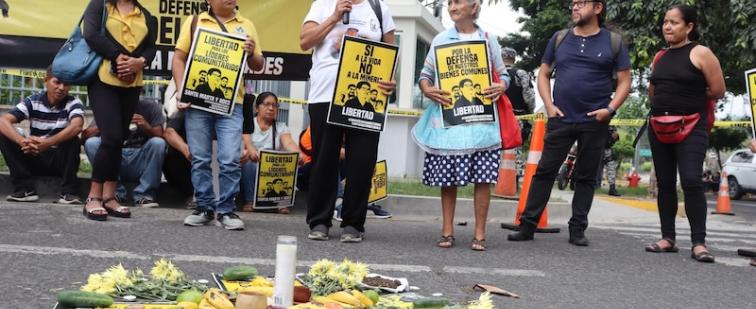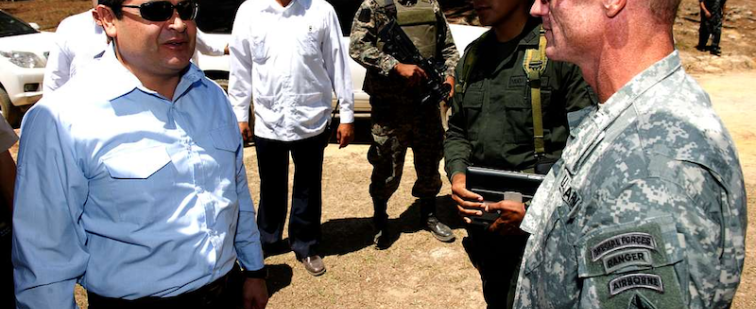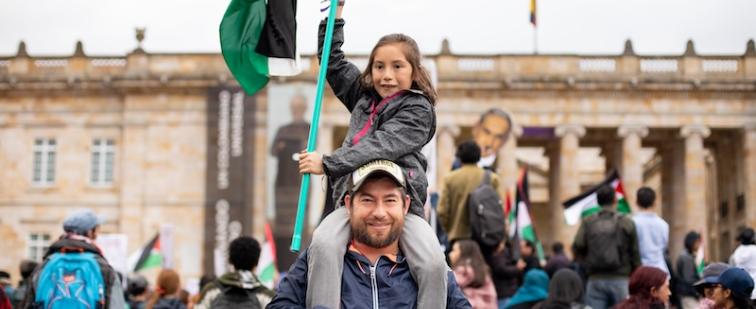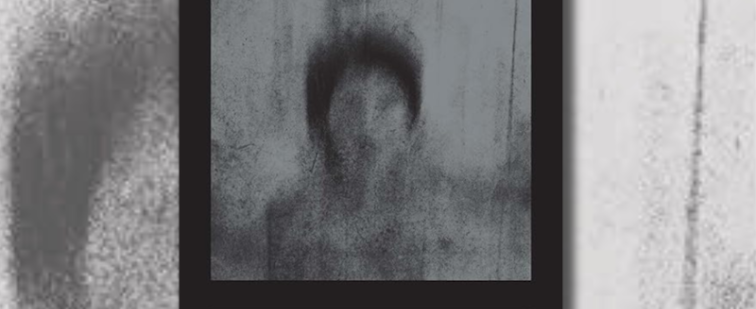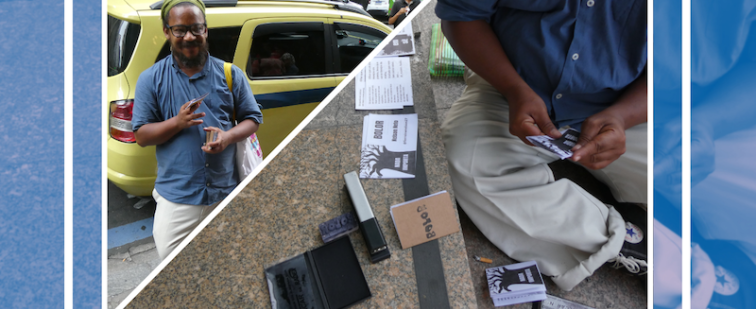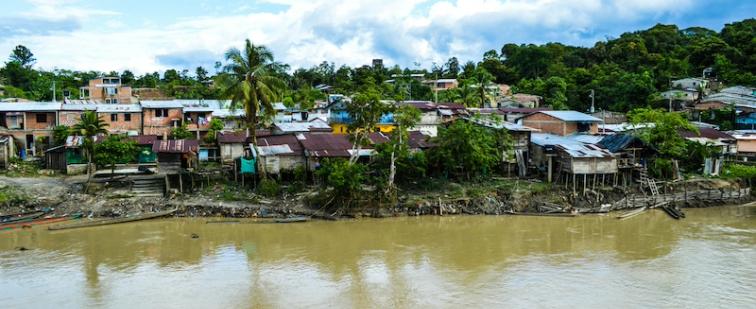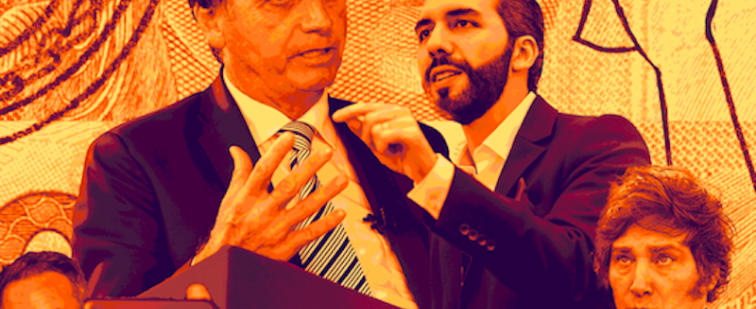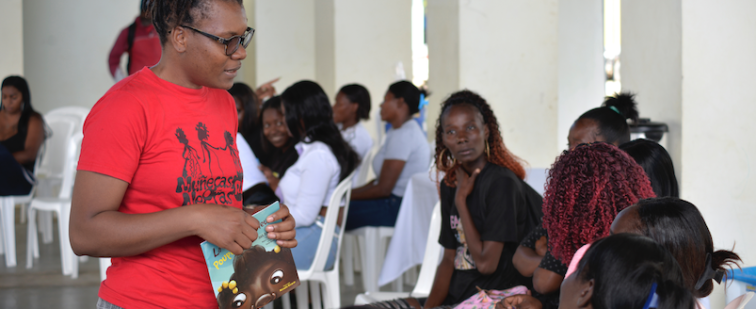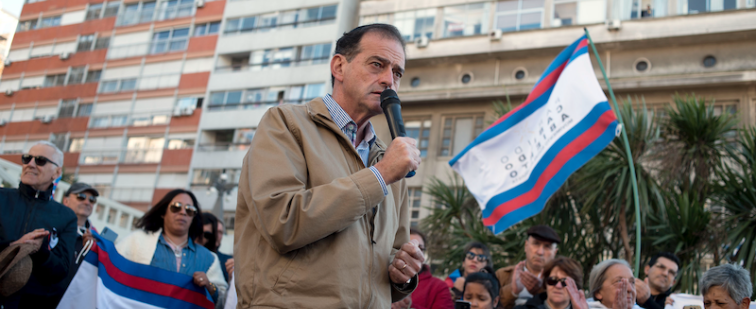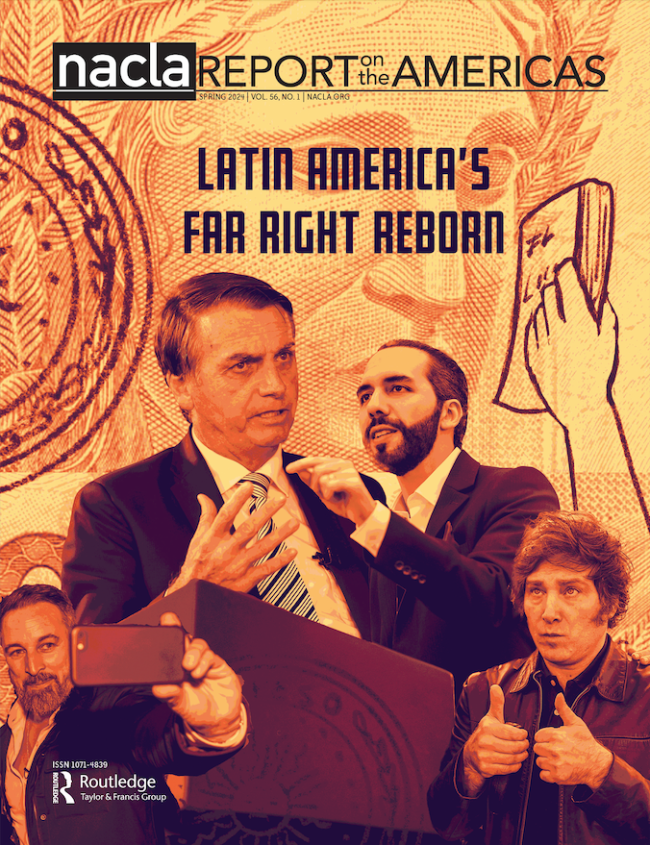Home
The U.S. press tends to portray left-leaning Latin American governments as hotbeds of anti-Semitism. In the case of Venezuela, this storyline has been promoted in three key ways: (1) attributing anti-Semitic acts or statements by private citizens to the government, (2) conflating legitimate criticism of Israeli policy with anti-Semitism, and (3) relying on press statements by U.S.-based Jewish organizations at the expense of Venezuelan Jewish organizations.
The members of Centro Campesino, a cooperative in Guatemala’s Petén region, are fighting to recover their land. Their displacement, their struggle, and their inability to protect their community, Yaxchilan, reveal the surprising ways that both export-led development plans and conservation programs can disregard the interests of indigenous and traditional communities. For conservation groups, this oversight can lead to a failure to ally with the only communities that may effectively stop mining, petroleum exploration, hydroelectric dams, and monoculture crops that destroy the environment.
The agricultural sector that is emerging has fewer, bigger, more industrial farms. It relies on imports of pesticides more than ever. And the quality of its famed meat is being traded for cheap production. It is a trend that will be difficult to reverse. Cattle farming takes such a large up front investment that once a farmer sells his herd, it is hard to get it back. Historically, Argentines have treated cattle as walking bank accounts—the word for the industry, ganaderia, shares the same root as the verb “to earn.” For many farmers, the bank is broken. They are now fully dependent on the volatile international prices of soy and other crops.
The announcement on June 25 that Spain will begin to limit its application of universal jurisdiction garnered no more than a humble blip in international media coverage. The principle, which asserts that certain crimes are so egregious that they are an affront to all humanity and therefore prosecutable by any nation, is at the center of fierce philosophical debate in international law. But for survivors of genocide in Guatemala, universal jurisdiction has represented something much more tangible—an important avenue for justice against the lingering impunity left in the wake Latin America's dirty wars.
The most notable instance of a massive and successful social protest in Puerto Rico in recent years has been on the island of Vieques between 1999 and 2003. This was a rare case in which Puerto Ricans were able to overcome their partisan divisions to end the U.S. Navy's 60 years of training on this small, 51-square-mile island off the main island's east coast. Part of the reason for the Vieques victory, including gaining support from some influential U.S. politicians, was that leaders framed the protest in terms of human rights, public health and environmental degradation rather than Yanqui imperialism.
The first time Mario Terán faced a doctor from Cuba, he killed him. He heard Che Guevara utter his famous last words: "Shoot, coward; you are only going to kill a man," and in October of 1967, in a small schoolhouse in rural Bolivia, Sergeant Terán fired a round of bullets into the revolutionary's body. Forty years later, Terán walked into a medical clinic staffed by Cuban physicians. Disguising his identity, he requested medical attention. His cataracts were corrected, his sight restored.
The Writers in Prison Committee of International PEN (WiPC) protests the one-year prison sentence and fine handed down to publisher Raúl Figueroa-Sarti on 6 August 2009 for alleged copyright infringement. Figueroa is currently under house arrest and there are concerns for his safety. There are significant concerns that the case against Figueroa has been brought in retaliation for his publication of books on human rights abuses in Guatemala. The WiPC is therefore calling for the case against the publisher to be dropped and for him to be allowed to return to the USA, where he is resident.
It was a moment that promised to define a new era in U.S.-Latin American relations: Obama greeted Hugo Chávez at the Summit of the Americas with a smile and a handshake, and Chávez responded with a gift and a heavily accented “I wanna be your friend.” But a nearly completed agreement to grant the U.S. military access to Colombian bases is rapidly undermining whatever diplomatic progress was made in that fleeting moment.
Since U.S. journalist Brad Will was shot in the streets of Oaxaca during the 2006 uprising, the Mexican government has been dragging its feet on prosecuting his killers. But now that billions of U.S. drug war dollars hang in the balance, the government has tried to pin the murder charges on Juan Manuel Martínez. Evidence strongly shows Martínez's innocence, suggesting the Mexican government is trying to whitewash its human rights record.
On Tuesday, July 28, the U. S. government announced that it had revoked the visas of four leading members of the government installed by the June 28 Honduran coup. More than a month after the Honduran military awoke President Manuel Zelaya at gunpoint and sent him packing to Costa Rica, it appears that Washington is finally beginning to put its foot down—lightly.

